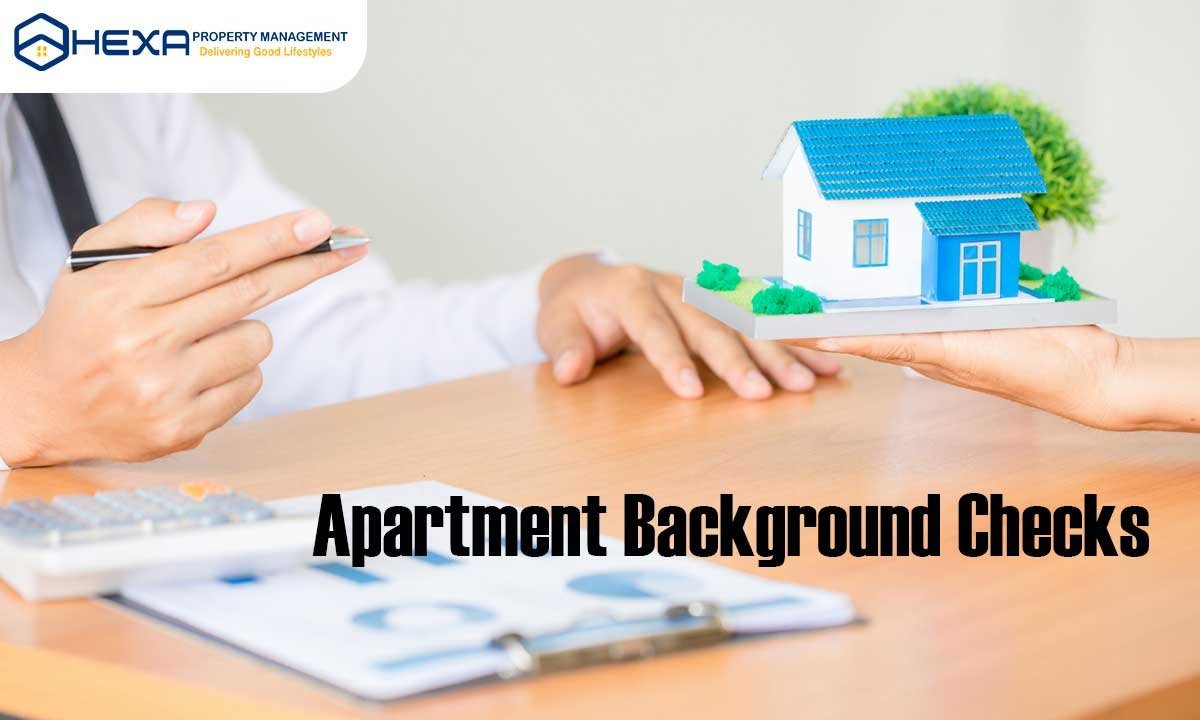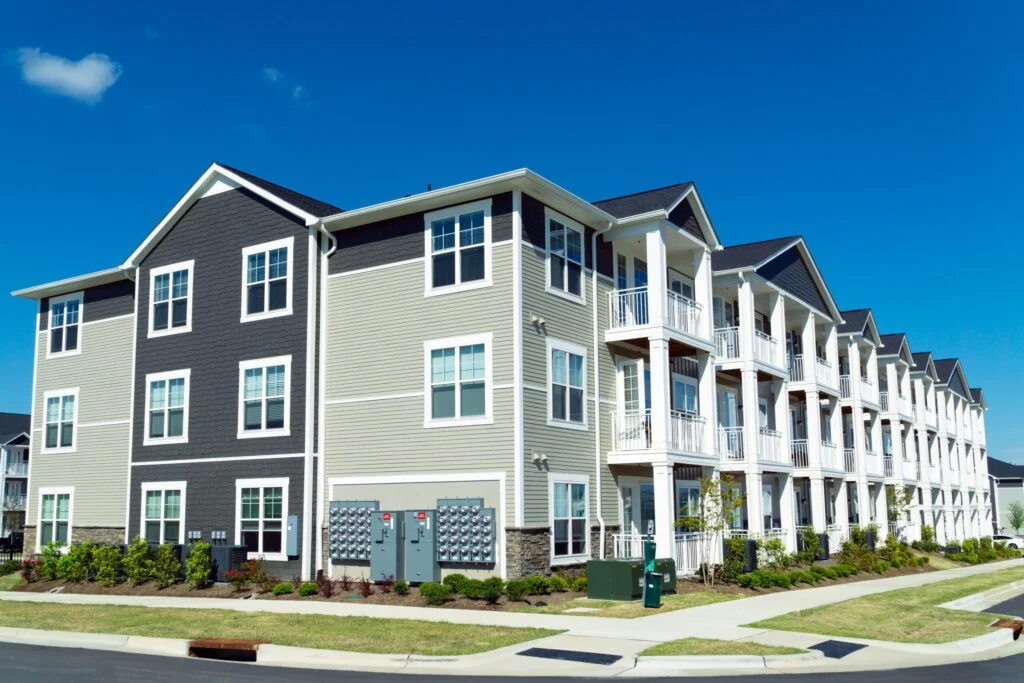Ever wondered why landlords insist on doing apartment background checks when you apply for an apartment? It’s all about protecting their property and business from any potential problems tenants might bring. These background checks make sure that what you’ve said on your rental application about your money and past is true. If there are warning signs in your background, it might hurt your chances of getting that apartment. But if you’ve had some money or housing issues before, don’t stress – there are ways to make it more likely you’ll pass the check.
Why are apartment background checks needed?

Landlords do background checks to protect their property and business from potential problems caused by tenants. These checks make sure that the information tenants provide about their finances and personal history on rental applications is true.
If there are red flags in your report, it could affect your chance of getting the apartment. But don’t worry if you’ve had money or housing problems before – there are things you can do to make it more likely you’ll pass the check.
What do apartment background checks look for?
Landlords check backgrounds to learn about potential tenants and ensure they’re a good match for the apartment. It helps prevent problems and keeps the place safe.
While it’s not always required, most landlords do this to select dependable renters and maintain a great living environment.
What are apartments looking for in a background check will be some factors like past rental history and financial background, to make the best decision.
Rental history
Your rental history is a big deal for landlords when they’re looking at your application. It tells them how you behaved with your previous landlords and managers of places you’ve rented.
A good rental history includes stuff like finishing your rental contracts, paying your rent on time, being a good tenant, and taking care of the property.
Landlords usually ask for the contact info of your old landlords or managers to check if what you said matches up. If it does, it improves your chances of getting the place. If you don’t have a rental history, you can give references from your boss, friends, or family to show you’re reliable and trustworthy.

Employment history
When landlords check your work history, they want to figure out if you’re a reliable tenant. They ask about your job to see how stable it is. If you’ve changed jobs or lost one before, they might ask more about how you’ll manage to pay rent.
But if you’ve always paid rent on time despite job changes, it’s important to be honest about it. Landlords usually suggest keeping your rent payments at around 30% of what you earn each month.
Sometimes, they’ll call your boss to confirm how much you make, how long you’ve been at your job, and if your rent fits your budget. Landlords usually like it if you’ve been at the same job for at least six months.
If they’re worried about your job history, offering a recommendation letter or a bigger deposit can help. Having someone like a parent or relative co-sign your application can also make a difference.
Criminal history
Landlords need to keep their properties safe, so they perform criminal background checks for apartments to ensure the safety of their properties.
Having a record doesn’t always mean you won’t get the place, but landlords consider what the charges were when they happened, and if there were any convictions.
They can refuse to rent to registered sex offenders without getting into legal trouble. Any rules about criminal records must make sense and be fair for everyone.
It’s not a good idea for landlords to only look at someone’s criminal history without having clear rules in place. If a tenant’s criminal history is part of the rental process, it’s smart to get legal advice to make sure everything’s done correctly.

Broken lease – Eviction record
If you’ve had an eviction, it stays on your rental history report for around seven years. But if it hasn’t been that long yet, it’s a good idea to explain what happened to the landlord.
You can also ask your employer, friends, or colleagues to vouch for you and show that you’re dependable and trustworthy, despite the past issue.
Sharing this info might help the landlord see things from your perspective and understand your situation better.
How far back do apartment background checks go?
Apartment background checks typically look back over the last 7 to 10 years, especially when it involves credit checks.
If there are negative marks like loan defaults or car repossession, they might stay on your credit report for about seven years, meanwhile, bankruptcy can stick around for up to 10 years.
Landlords use this credit report info to decide, but they have to treat everyone fairly by applying the same rules to all applicants to follow federal fair housing laws.
It’s really important to check your state’s laws about background checks and applications when you’re applying for a place to live so you understand what landlords can consider and what your rights are.
How to pass a background check for an apartment?
An apartment background check gives you a chance to show that you’re a reliable tenant. Being open about your background can make a big difference in how landlords see you as a renter.

Know your rights
Before you apply, check your credit report for any mistakes. Usually, negative stuff older than seven years (except bankruptcy) shouldn’t affect your credit check.
If your application gets denied, landlords have to tell you why, either in writing, speaking, or through email. They also have to give you a free credit report if you ask for it within 60 days.
As per the Fair Credit Reporting Act, landlords must provide contact info for credit reporting companies and help you fix any mistakes in your report.
It’s important to know that saying no to everyone with a criminal record might break the rules unless the landlord has a good reason that isn’t discriminatory. Understanding these rights helps you make sure things are fair when you’re applying for an apartment.
Show Your Positive Character
Your landlord needs to trust that you’ll handle their property well. That means paying rent on time, staying out of trouble, and not getting evicted.
Show them the positive changes you’ve made by giving documents that prove it. Share things like references from people who know you, your education plans, any mentoring you do, or activities that show you’re on the right track.
Boost your credit score
Landlords generally prefer applicants with a credit score of 670 or higher. Many things can influence your credit report, such as where you live, your demographic details, and the demand for housing in your area.
To maintain or boost your credit score, you can do a self-check, catch up on any overdue payments, avoid maxing out your credit cards, and always pay on time.
If your credit score isn’t great, being honest with the landlord about why can help. You can also consider having someone co-sign your lease or show strong evidence of your income to improve your chances.
FAQs
How long do apartment background checks usually require?
Checking can take a few days or up to a week, especially if they need to confirm someone’s job. Every landlord does background checks differently, so it might take more or less time.
Do all apartments do background checks?
Most apartments, whether managed by big companies or individual landlords, usually run background checks on applicants.
To improve your chances, it’s helpful to offer references, be honest with the landlord about your background, and consider options like a larger security deposit or a longer lease to show your commitment.
These steps can enhance your prospects of securing an apartment, even if you have some background issues.
How much does an apartment background check cost?
Apartment background checks usually come with an application fee that covers the cost of the process.
This fee is usually around $30 to $50, but some landlords might ask for more. In some states, there are rules about the maximum amount landlords can charge for this fee, so it’s a good idea to check your local laws.
Being aware of these costs and rules in your area can help you prepare when applying for an apartment.
Apartment background checks for apartments aren’t just standard procedure; they’re a way for landlords to pick the right tenants for their places. Knowing your rights, showing good character, and working on your credit score can help your chances. This could mean giving references, being open about your background, offering a bigger deposit, or agreeing to a longer lease to prove you’re serious. Understanding the costs involved, checking local rules, and being prepared can boost your chances of passing the background check and landing that dream apartment.









